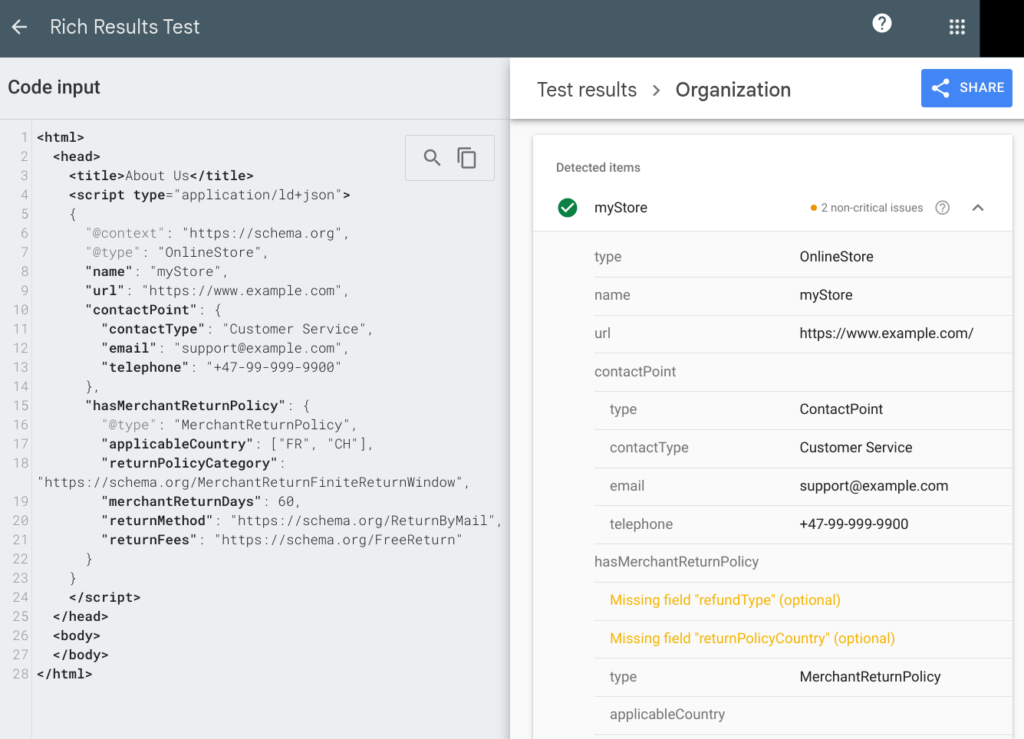Shopping online has become an integral part of modern life, but one major concern for consumers is the return policy of the products they purchase. Recognizing this, Google has introduced a significant update that will benefit both businesses and shoppers. Return policies play a pivotal role in shaping customer buying decisions.
What’s New Regarding Return Policy Markup ?
Previously, Google enabled the extraction of structured data for return policies on a per-product basis. This meant that businesses had to define return policies individually for each product they sold. While effective, this approach could be cumbersome and time-consuming, particularly for businesses with large inventories. To address this, Google has now added support for return policies at the organization level.
Key Benefits:
- Ease of Management:
- By defining a general return policy for the entire business, companies can reduce the complexity and size of their product structured data markup.
- This centralized approach simplifies the process of managing return policies, ensuring consistency across all products.
- Enhanced Visibility:
- Return policies defined at the organization level can be displayed alongside various search results, such as knowledge panels and brand profiles, in addition to individual product search results.
- This increased visibility helps build trust with potential customers, making them more likely to purchase.
- Merchant Center Integration:
- For businesses using Google Merchant Center, it’s recommended to define the return policy directly within the Merchant Center. This ensures that return policies are integrated seamlessly with existing product listings.
- Businesses without a Merchant Center account can still provide a return policy through the organization structured data, ensuring they don’t miss out on this crucial feature.
Testing and Validation
Google has also updated the Rich Results Test tool to support the new organization-level return policy feature. Businesses can use this tool to:
- Submit the URL of a page or a code snippet containing their structured data.
- Validate whether their markup is correct and will be properly displayed in search results.
This validation step is essential to ensure that the return policy information is correctly implemented and visible to customers when they search for products or the business.
How to Implement
To add an organization-level return policy, businesses need to include the relevant structured data in their website's markup. This involves specifying the return policy in the JSON-LD format within the organization schema. Detailed guidelines and examples can be found in Google’s developer documentation.
Conclusion
Google's new feature for organization-level return policies marks a significant improvement for both e-commerce businesses and consumers. By streamlining the process of defining and managing return policies, businesses can enhance their operational efficiency and customer satisfaction. For shoppers, this means clearer, more accessible return information, helping them make informed purchasing decisions with confidence.
For more detailed information and implementation guidelines, visit Google’s official Search Central blog.
This update is part of Google's continuous effort to improve the online shopping experience, making it easier and more reliable for everyone involved.
You can test return policies defined under your organization structured data using the Rich Results Test by submitting the URL of a page or a code snippet. Using the tool, you can confirm whether or not your markup is valid.







